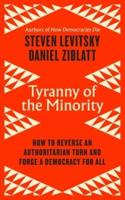Publisher's Synopsis
Social science and social reform flourished in Imperial Germany, and the historical economist Gustav Schmoller made fundamental contributions to both. Despite this, historians have neglected him. Questioning the term 'German Historical School' associated with Schmoller, Grimmer-Solem reveals the European context of Schmoller's thought and the influence of empiricism, statistics, and advances in the natural sciences on his choice of methods. By exploring the social context in detail, he deomonstrates how the nexus of young scholars around Schmoller fundamentally transformed German economics into a tool of social reform which was directly relevant to the many 'social questions' raised by rapid industrialization and urbanization in Germany in the 1860s. These reform efforts were novel in that they put forth the idea that inequality and poverty were ills emerging from the division of labour which society had an obligation to remedy. As a result, an awareness of the social implications of individual economic action emerged which proved remarkably useful for the development of social policy. Although the dissemination of this reform message influenced public opinion and put social reform on the political agenda, Grimmer-Solem shows that Schmoller and his colleagues remained a beleaguered group, attacked from all political directions. His investigation brings the fissures within German liberalism into sharp relief, revealing the persistence of a potent ideal of classlessness that fundamentally shaped German social policy. Grimmer-Solem makes a unique and much-needed contribution to our understanding of the thought and milieu of Gustav Schmoller, the origins of social reform, and the development of the social sciences in Germany. The resulting volume addreses central questions in the historiography of the German Empire, of relevance to all German, European, social, and intellectual historians.







